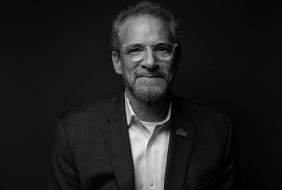Earlier this year, we announced that Beyond Housing and the Metropolitan Golf Foundation, the charitable arm of the Metropolitan Amateur Golf Association (MAGA), have begun a joint partnership to lease the Normandie Golf Club from the University of Missouri-St. Louis with an option to buy. Initially, the lease and option to purchase was effective through October 31st 2020. We are thrilled to announce that both have been extended through September 30th, 2021. We will soon launch our fundraising campaign to secure the funds to purchase the course and also make long-term investments in the course as well.
The 119-year-old Normandie Golf Club—which is currently open—is situated on 120 acres in the center of the 24:1 Community, an area comprised of multiple municipalities within the Normandy schools footprint in North St. Louis County.
On first blush, it’s only natural to ask—why is a nonprofit dedicated to transforming underserved communities and helping our fellow St. Louisans lift themselves out of poverty getting into the golf course business? I wanted to take some time to answer that question and share why we are so excited about this opportunity.
The simplest answer is that this isn’t really about golf. It’s about something much bigger.
Grocery stores, cinemas, golf courses: Our comprehensive model
Individuals and families have basic needs that must be met in order to thrive. So do communities.
Successful communities need an adequate supply of quality housing, local businesses that provide jobs and access to essential goods and services, and all the other things that make communities desirable places to live—from parks to movie theaters, and, yes, even golf courses.
This is why, in addition to strengthening families, a big part of our comprehensive model involves improving and transforming the built environment through new construction and infrastructure upgrades (sewers, streets, and greenspaces), as well as economic and commercial development.
Over the last ten years, Beyond Housing has raised and invested more than $60 million in construction and economic development projects within the 24:1 Community. These projects include the construction of hundreds of new homes, a grocery store, a bank, two senior centers, two healthcare facilities, a cinema, retail space for local businesses, and more.
It’s about changing the narrative
Communities develop running narratives over time—both internally and externally. In underserved communities, it’s easy for that narrative to skew far more negative than positive.
Transforming and improving the built environment and landscape of a community is critical for changing this narrative. It’s important for the people who live here to see that their community can have the same kinds of things that are found in other successful communities. It’s important for others to see it too. In addition to all the other new construction and upgrades, a well-kept golf course that is enjoyed by both the community and other St. Louisans is a powerful statement that goes well beyond just offering hope—it provides validation and proof that progress and success is here to stay.
On the other hand, seeing 120 acres of pristine land in the heart of the 24:1 Community become vacant and dilapidated like so many other community assets over many decades would be a devasting blow to this community at a time when so much hard-earned progress has been made.
Serving the community means serving everyone
The other part of the narrative for underserved communities is the extreme generalization of the people who live there.
Not everyone here lives near or below the poverty line. While many do struggle, there are thousands of individuals and families here that own their own homes and put their kids through college just like people who live elsewhere.
Serving the community means serving everyone.
A community’s precious assets are worth fighting for
Transforming the physical environment of underserved communities is hugely important. But along with new construction and development, it’s also critical to preserve the precious assets that a community already has.
Built in 1901, the Normandie Golf Club is one of the oldest public golf course west of the Mississippi River. It was designed by Robert Foulis, a disciple of legendary Scottish golfer and course designer, Thomas “Old Tom” Morris. Robert and his brother Jim are considered the founding fathers of golf in the Midwest and designed many other golf courses in St. Louis, including the Forest Park Golf Course and the original Bellerive.
But the significance of this course to the 24:1 Community is much bigger than golf. It’s about ensuring that 120 acres of pristine land located in the heart of this community is not abandoned and left to ruin when so much potential for the community is at stake.
It’s critical that we fight to instill every acre and every part of this community with as much opportunity, renewal, and resurgence as we can rather than letting any part of it fall into decline.
Opening doors to new opportunities
This course holds enormous opportunity for this community. There is great potential for youth golf and education programs as well as programs for people of all ages. The founder of MAGA, Tom O’Toole Jr., has been dedicated to expanding golf inclusion and diversity for more than 30 years, including initiatives he led during his term as President of the United States Golf Association (USGA) from 2014-2016. As just one example, how amazing would it be to see the Normandy High School start a golf team?
Again, golf is only one small part of this. In addition to the sport itself, this course provides new opportunities for youth and residents in other aspects, from learning about the agronomy and biology that goes into maintaining the landscape to the hospitality aspects of operating a business.
Amazing partners and leaders in amateur golf
Our partners, the Metropolitan Amateur Golf Association (MAGA), are key players in the St. Louis golf world. MAGA is the largest Allied Golf Association (AGA) licensed by the USGA in the region with 140+ member clubs in St. Louis and Central and Southern Illinois. In addition to MAGA’s invaluable expertise and experience, we will also be relying on MAGA to open doors to fundraising opportunities within the greater golf world and well beyond.
MAGA’s foundation is also committed to introducing young people of all socio-economic backgrounds to the sport of golf, which we believe makes this venture a win-win for the 24:1 Community.
It’s about taking risks
We can’t achieve our mission of strengthening families and transforming communities to create a stronger St. Louis if we don’t take risks. We have to think innovatively if we want to create true transformation. When so much opportunity outweighs any potential risk, we have to take it.
Our management partner, the Walters Golf Management company, is the number one golf course management company in the Midwest and has an impressive track record of running golf courses successfully.
There are also other examples of underserved communities utilizing a golf course to further their transformation.
Our work will continue
Building an 18-hole golf course instead of investing in more new homes or other needed developments would be one thing. But we’re not building a golf course. It already exists.
It’s also not an either/or proposition. Preserving this course will not detract or take away resources from helping families thrive, building new homes, new economic development projects, programs to improve the health of families, or any of the other many other efforts that we engage and partner with the community on every single day.
With the right partners, we can do all of these things. And more.
It’s about creating more equality and a stronger St. Louis
Are some communities not allowed to have nice things? Are beautiful parks and playgrounds, multiplex cinemas, and golf courses okay in some communities but not in others?
No. We need to create more equality within the communities in our region, not less. Reducing the disparity of assets, health, happiness, and equity of opportunity within our communities is critical if we are going to create a stronger, more equitable, and prosperous St. Louis region for everyone.
And that, perhaps, is the biggest reason of all.


